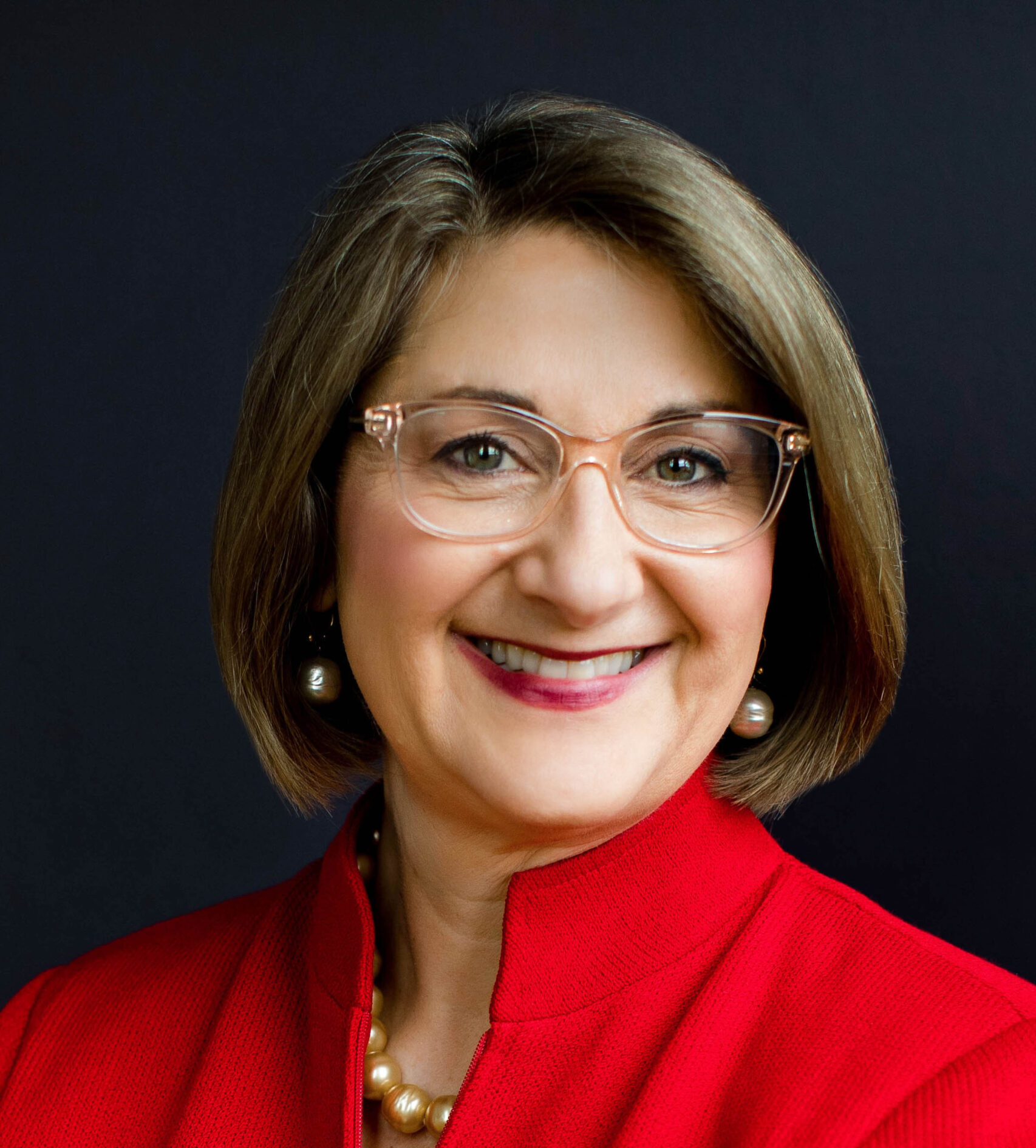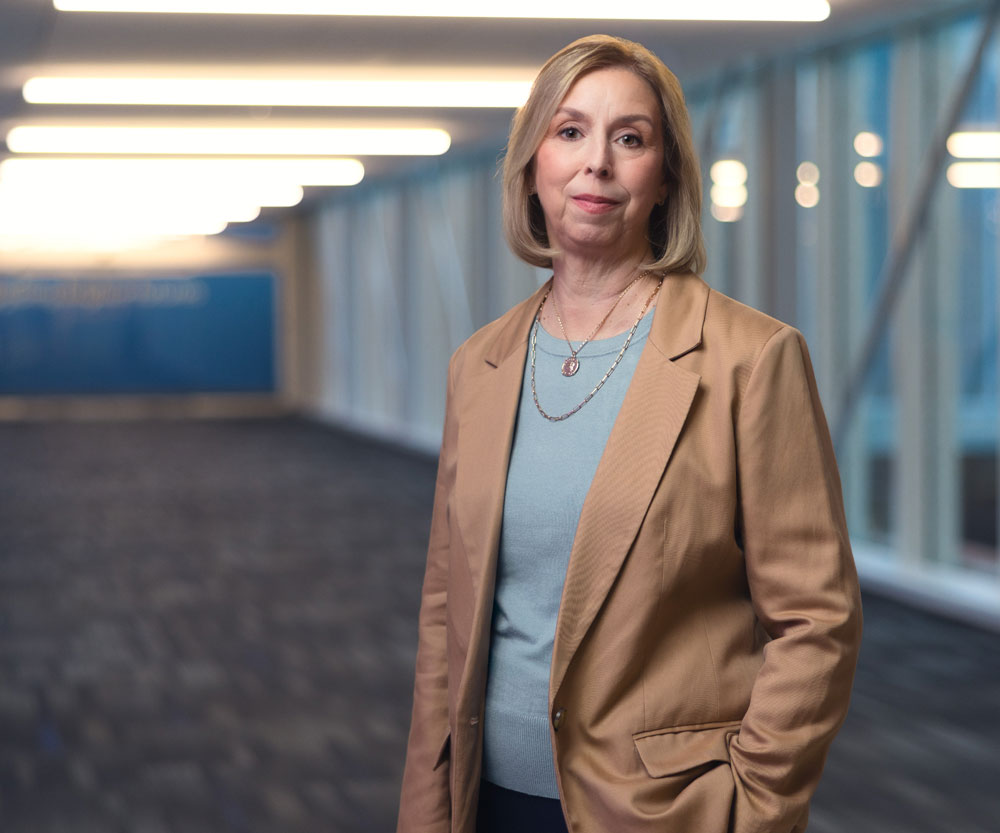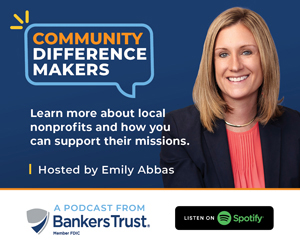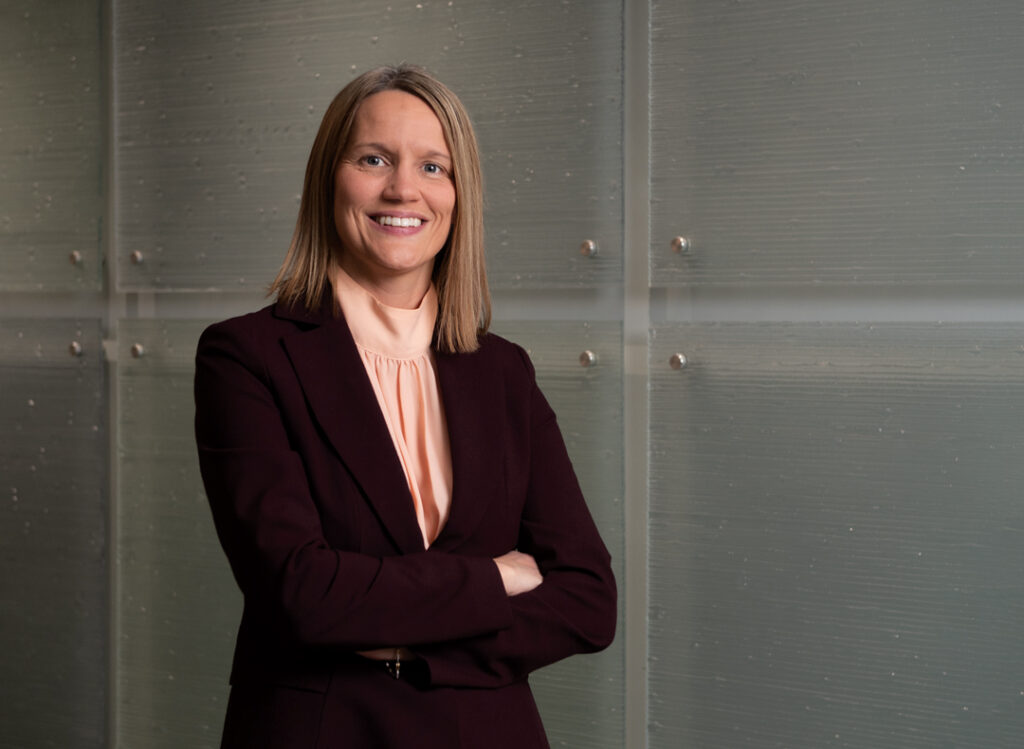Navigating the future: Principal’s Deanna Strable on leadership in an evolving world

“Leadership in the future will require not only a sound strategic plan but also the ability to focus, drive growth and empower our team to serve our customer.”
– Deanna Strable, president and CEO,
Principal Financial Group
In a world marked by relentless technological advancement, shifting customer expectations and complex global connections, the demand for adept leadership has never been more pronounced. I recently had the opportunity to sit down with Deanna Strable, Principal Financial Group’s new CEO, to talk about her philosophy and vision for leadership in this rapidly evolving world.
Strable’s leadership is grounded in a clear strategic vision, core values and a deep commitment to putting people first. Her rural Iowa roots instilled a strong work ethic and a sincere concern for people, which have informed her approach throughout her career and will continue to do so as she looks to the future.
As she leads Principal through the transformations of a changing world and industry, she said she is focused on fostering a culture of continuous learning and innovation and delivering financial security to customers worldwide. Her guiding principle of “growth, focus and team” aims to position Principal to not only navigate the future, but to shape it through integrity, empathy and a fundamental understanding that people are the heart of the business.
From Prole to Principal’s C-Suite: A foundation of hard work and heart
Strable’s trajectory to the CEO’s chair is a testament to the power of dedication, intellectual inquisitiveness and genuine empathy. Growing up in the rural Iowa community of Prole, she said she absorbed the values of diligence and compassion that would define her leadership approach. “My dad both farmed and worked a job,” Strable recalls. “Working hard and caring about other people is just foundational to how I grew up, and serves wonderfully when you’re leading and developing in your career as well.”
Strable, a first-generation college student, graduated from Northwestern University and then joined Principal as an actuarial assistant in 1990. From there, she embarked on a career characterized by continuous learning and a readiness to tackle new challenges.
Strable’s rise through the ranks of Principal was marked by a series of pivotal roles over the years, including leading U.S. Insurance Solutions and serving as chief financial officer. These roles provided her with a keen understanding of the interplay between finance, strategy and operational execution.
She also gained unique insight into how diverse organizational areas collaborate and the critical role of a strong, people-focused culture in achieving Principal’s mission, she said. Ultimately, this breadth of experience equipped her with a comprehensive view of the financial services sector and the evolving demands of Principal’s global customer base.
Growth, focus and team
Strable’s approach as CEO is rooted in her integral role co-creating the company’s recent strategic plan with former CEO Dan Houston and the leadership team. This direct experience in shaping the company’s future, combined with her diverse background across business lines and functions, has given her a holistic view of the organization and contributed to a smooth leadership transition, she said.
Strable advocates for this collaborative approach to strategy development and now aims to continue clarifying how the plan is embedded across the enterprise. She summarized her priorities, saying: “As we work together to successfully execute Principal’s strategy, there are three themes I’m focused on this year that will allow us to drive the greatest impact: growth, focus and team.”
While all of the three themes are important and interrelated, she emphasized the need for focus in an ever-changing business climate.
“Focus is a huge piece for me. A leader has to ultimately be able to motivate a team, but must also make sure that team is focused on the most important things,” she said.
Leading in a world of immediacy and innovation
In today’s fast-paced, digitally driven environment, financial services leaders face the formidable challenge of rendering complex products and services relevant and engaging.
While financial products are critical to economic well-being, Strable admits they are not always top of mind for consumers. “No one wakes up every morning and prioritizes increasing their deferral to their 401(k) or buying a life insurance product,” she said. “So how do we continue to morph our customer experience, our digital tools, and even talk about what our products and solutions do for people to resonate with them?”
She notes that in an “environment of immediacy,” traditional approaches to financial planning and insurance are no longer adequate. Leaders must embrace innovation, leverage technology and cultivate a customer-centric mindset to stay ahead of the curve.
The advent of artificial intelligence and automation presents both opportunities and challenges in the financial services industry. Strable said she recognizes the transformative potential of these technologies, but also believes in preserving the human element in leadership.
“Having that intellectual curiosity to challenge the status quo and thinking about better ways to do and accomplish things” is critical, she says. But while emphasizing that leaders must be open to technological advancement, she also insists that empathy, judgment and strategic thinking are increasingly indispensable in today’s rapidly evolving workplace.
The evolving art of leadership
Over her career at Principal, Strable’s leadership has evolved significantly. While her underlying leadership philosophy has remained steady, the way she leads day to day has shifted from direct execution to empowering others.
In her various roles, Strable worked for different managers and on different teams, and she realized how vital leadership and culture were to her as an employee.
She said these firsthand experiences informed her own understanding that true leadership lies in fostering a culture where individuals feel valued and supported. As a result, her leadership philosophy has always been anchored in the belief that “how you treat people” is paramount.
“People stay at a job because they enjoy working with others, and ultimately they leave a job usually because of their leader. And a lot of times that leader piece is, ‘Do I feel my leader cares about me?’” Strable said.
In her early roles as an individual contributor Strable was focused on executing tasks, but as she progressed, she learned to identify problems and guide teams toward innovative solutions. This ability to think critically and lead people contributed to her advancement. Over time, Strable’s leadership style evolved from hands-on execution to empowering others to lead.
She recognizes the unique challenges of leading leaders. “I think the hardest transition of leadership is when you move from leading individual contributors to when you’re leading leaders,” she said. “You can’t take the same approach with leaders that you do with individual contributors.”
Strable said she focuses on asking thought-provoking questions and facilitating connections across the organization. With her leadership team, “it is challenging them, asking thought-provoking questions, making connections across the organization to make sure we’re not reinventing the wheel [and that] we’re coming up with solutions that more broadly serve our customers’ needs.”
“My role now is often to listen,” Strable said. “To understand where they need my involvement – and it’s my role to see if we can push to do even better.”
Learning from every leader and situation
Strable’s leadership journey has been shaped by a diverse array of experiences, some positive and others more constructive.
“I learn more from bad leaders than I do from good leaders,” she said. “And so a leadership lesson I try to tell others is that every situation, every team and every leader is a learning experience. Some of it is to learn what not to do, some of it’s to learn what to do – and it’s how you take all of that together to inform how to do better.”
She encourages aspiring leaders to embrace new opportunities even if that is not comfortable. “It’s not natural for most people to go outside their comfort zone,” she said. “But honestly, the thing that has positioned me best for this role is the fact that I did go outside my comfort zone and have been open to different opportunities around the company.”
People-centered values and purpose
Strable says that Principal’s strong, people-oriented culture is a key differentiator in the competitive financial services industry. For her, the organization’s culture isn’t just a talking point — it’s the reason she’s dedicated her entire professional career to the company. “When I started at Principal, I never thought I’d be here 35 years later,” she reflects. “But what’s kept me here is ultimately our culture and core values – how we focus on our purpose and on doing it the right way.”
That purpose is rooted in Principal’s “noble work,” she said.
“The products and services that we offer to people are life-changing,” she said. “And I’ve had the experience a number of times where customers thank me for the fact that what we provide changed their lives – whether it’s a monthly retirement check, life insurance or a disability benefit.”
This direct connection to the customer’s well-being is paramount for Strable. “Our purpose is to bring financial security to customers around the globe,” she says. She stresses that when looking at financial metrics or milestones on a project, it can be easy to lose sight of that end goal, so it is important to her to help every team member understand the benefit their work brings to the customer.
Strable says Principal’s purpose is rooted in its values, which operate on four fundamental principles: Start with the customer, do what’s right, own what’s next, and invest for the future. These values serve as the company’s ethical compass, guiding every decision and action.
“‘Do what’s right’ is probably the one that is front and center to me,” Strable said. She believes that these values, coupled with a deep sense of purpose, create an environment where employees are not only engaged, but also connected to the effect they have on customers’ lives.
Beyond balance: Embracing the ‘whole person’
Employee well-being is central to Principal’s culture, Strable said, noting that she often finds herself fielding questions about the topic of managing personal and professional life.
Having navigated a dual-income career while raising children, this question hits home for her — and she emphasizes that it applies equally to men and women. “I’ve always recognized that you need to take a personalized approach to everyone on your team,” she said. “I always have felt it’s important to know that whole person – understanding not just what they do here at Principal, but what’s their family situation, what’s their broader situation?”
This “whole person” philosophy, as she describes it, extends to the integration of work and personal life. Strable champions a deeply personalized approach, dismissing the idea of a fixed “balance” in favor of a flexible “fit.” Drawing from her own experience, she acknowledges this fit is ever-changing, adapting to life’s phases, and she underscores the necessity of individual autonomy, stating, “No one else can define that for you.”
Strable highlighted technology’s role in offering new avenues for managing work-life fit as well as the importance of location and culture. She said Principal and the Des Moines community nurtured a supportive environment that aided her own work-life integration over the years.
She said she advocates for conscious choices, recognizing that each person’s situation “changes over time,” and that harmonizing work and life is a continuous, personal endeavor.
Cultivating curiosity: The future of leadership
Strable says that effective leadership fosters a culture of continuous learning and development, which she considers essential for navigating rapid change.
She is committed to cultivating this learning culture at Principal, aligned with the core value of “own what’s next.” Strable believes that while individuals must take ownership of their growth, leaders play a crucial role in providing the necessary tools and support.
She highlighted the importance of offering diverse learning modalities, from self-led modules to structured, company wide initiatives. A strategic approach is essential, she said, particularly when addressing rapidly evolving skills.
While many skills are imperative for the leader of the future, the top skill Strable values is “intellectual curiosity.” She says increasingly, companies need team members who can “lean into what is the broader perspective,” whether that is on generative AI, product development or how to approach leading a global organization.
Ultimately, Strable’s vision for Principal’s culture is built on human-centered leadership.
“Leadership in the future will require not only a sound strategic plan but also the ability to focus, drive growth and empower our team to serve our customer,” she said. By fostering a culture of purpose, integrity and continuous learning, she aims to empower both her team and their customers to create the future.
For her, leadership is “the art of the possible.”
Deanna Strable’s advice for aspiring leaders: Execute well and embrace the big picture
Deanna Strable offered a blend of practical wisdom and insightful perspective. She emphasized the importance of seizing opportunities, while grounding ambition in present-day excellence.
“Don’t be so focused on the next step that you forget to execute wonderfully in your current role,” she advises, cautioning against letting future aspirations overshadow today’s responsibilities.
Strable’s leadership philosophy extends beyond immediate tasks, stressing the significance of understanding the big picture. She advocates for a balanced approach, merging technical proficiency with essential soft skills.
“How are you treating other people? Are you being respectful? Are you acting as a team?” she said. She says she constantly asks her leaders and teams these questions, highlighting the critical role of respect in fostering a collaborative environment.
Her approach to personal development is equally nuanced. While acknowledging the value of focusing on strengths, particularly in hard skills, Strable advocates for a different strategy when it comes to soft skills.
“What I’ve come to realize is that for your hard skills, you should focus on your strengths. But for your soft skills, you should focus on your weaknesses – not to make them strengths, but prevent them from being derailers in your ability to get ahead,” she said.
As a leader, Strable said she maintains a commitment to holistic leadership, emphasizing the need for continuous self-improvement and a well-rounded approach.
Des Moines: The heart of Principal’s global vision
In a world where global reach and technological flexibility are paramount, Principal Financial Group stands firm in its commitment to its Iowa roots, CEO Deanna Strable told the Business Record.
She said that Des Moines remains the heart of Principal’s operations, even as the company expands its global footprint.
“We’re committed to having a vibrant community of workers here,” Strable said. “We think Des Moines is a great place to attract and retain talent, and ultimately, it’s served us well in being able to serve our customers well.”
With nearly 20,000 employees worldwide, a majority of Principal’s U.S. workforce still resides in Des Moines, solidifying its status as the company’s global headquarters. “If you look within the U.S., Des Moines is still our global headquarters, and from a U.S. employee base, the majority is still sitting here in Central Iowa and in Des Moines,” Strable said.
However, Strable acknowledged that technology allows for greater flexibility in attracting and engaging talent. Principal’s strategic hubs in New York, Charlotte, N.C., and London play a vital role in this evolving strategy, serving as magnets for specialized skills and fostering enterprise-wide collaboration, she said.
“Technology does afford you the opportunity to be more flexible around where you attract your talent and how you’re thinking about working with them,” she said.
These hubs, once primarily business-centric, are now seen as integral components of a broader talent network. Strable shared that her vision is to create a seamless connection between Des Moines and these key locations, ensuring that Principal’s core values and culture remain consistent across the enterprise.
“Des Moines will continue to be our world headquarters,” she said. “We’ll continue to have other hubs where we attract and retain, but ultimately we remain very committed to the Des Moines community.”

Suzanna de Baca
Suzanna de Baca is a columnist for Business Record, CEO of Story Board Advisors and former CEO of BPC. Story Board Advisors provides strategic guidance and coaching for CEOs, boards of directors and family businesses. You can reach Suzanna at sdebaca@storyboardadvisors.com.









